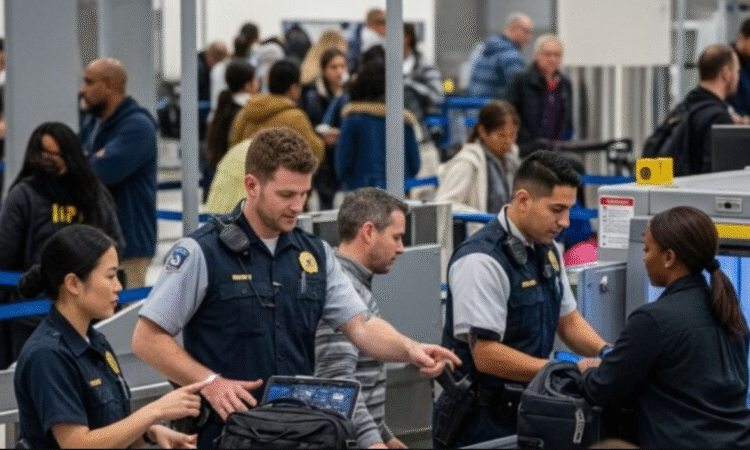
Federal workers have already begun missing their paychecks, and U.S. troops are days away from losing theirs as the government shutdown continues with no end in sight. Inside Washington, a growing group of hardline Republicans is now seriously considering what’s being called the “nuclear option” — a drastic measure that could change Senate rules and allow the government to reopen with a simple majority vote.
The proposal, long considered an extreme last resort, would eliminate the long-standing requirement of 60 votes to overcome a filibuster. Instead, it would let a bare majority of senators pass a funding bill, effectively cutting out the minority party’s power to block legislation.
For weeks, the Senate has been at a standstill. MAGA-aligned Republicans, increasingly frustrated by the deadlock, say enough is enough. Ohio Senator Bernie Moreno told HuffPost that he believes the time for action is near. “If it takes too long, that’s probably an option that should be considered,” Moreno said. “Eighty percent of Americans can’t go without two paychecks in a row. If Democrats keep doing political stunts, we have to do the right thing — reopen the government and pay our employees.”
Moreno also questioned the fairness of the current rules. “You have a majority,” he said, “but unfortunately, the rules are 60. That’s decently arbitrary.” In his view, the American people elected a majority party to lead, not to get tied up in procedural red tape.
In the House, Representative Marjorie Taylor Greene echoed Moreno’s comments, arguing that Republicans should stop hesitating to use their power. “As far as worrying that using the nuclear option would damage partisan relations, let’s be real, that ship has sailed a long time ago,” Greene wrote on social media. “There are no partisan relations anymore. Republicans need to learn how to wield power when they have it and govern.”
At the moment, Republicans have enough votes to pass their version of a government funding bill in the House, but Democrats in the Senate have blocked it. They argue that the GOP bill strips away key protections for health care and cuts funding for social programs. The problem for Republicans is that they lack the votes to override the filibuster or change the rule entirely.
Senate Majority Leader John Thune has publicly rejected the idea of using the nuclear option, despite growing anger among rank-and-file Republicans. “There’s always a lot of swirl out there, as you know, from social media, et cetera,” Thune told reporters, “but no, I have not had that conversation.” When asked if former President Trump or his allies were pressuring him to take that route, Thune stayed firm in his refusal.
Behind closed doors, however, tensions are running high. The Senate adjourned Thursday without reaching a deal, ensuring the government will remain shut down into next week. That means members of the military will miss their October 15 paycheck, while hundreds of thousands of federal workers have already gone without pay since Friday.
The economic impact is starting to ripple across the country. Air travel is facing growing delays as air traffic controllers and TSA agents continue to work without pay. Small businesses near government offices are losing customers, and many families who depend on government salaries are struggling to cover rent and groceries. Economists warn that if the shutdown lasts beyond the next pay period, the strain on consumer spending could spread throughout the wider economy, potentially slowing growth and confidence heading into the holiday season.
Even so, many senators are reluctant to unleash a political weapon as powerful as the nuclear option. They know it could permanently alter how Congress functions — and could easily backfire the next time power changes hands. For now, both parties remain locked in a high-stakes standoff: the filibuster stands, the shutdown continues, and the pressure on lawmakers to find a solution grows heavier with each passing day.




